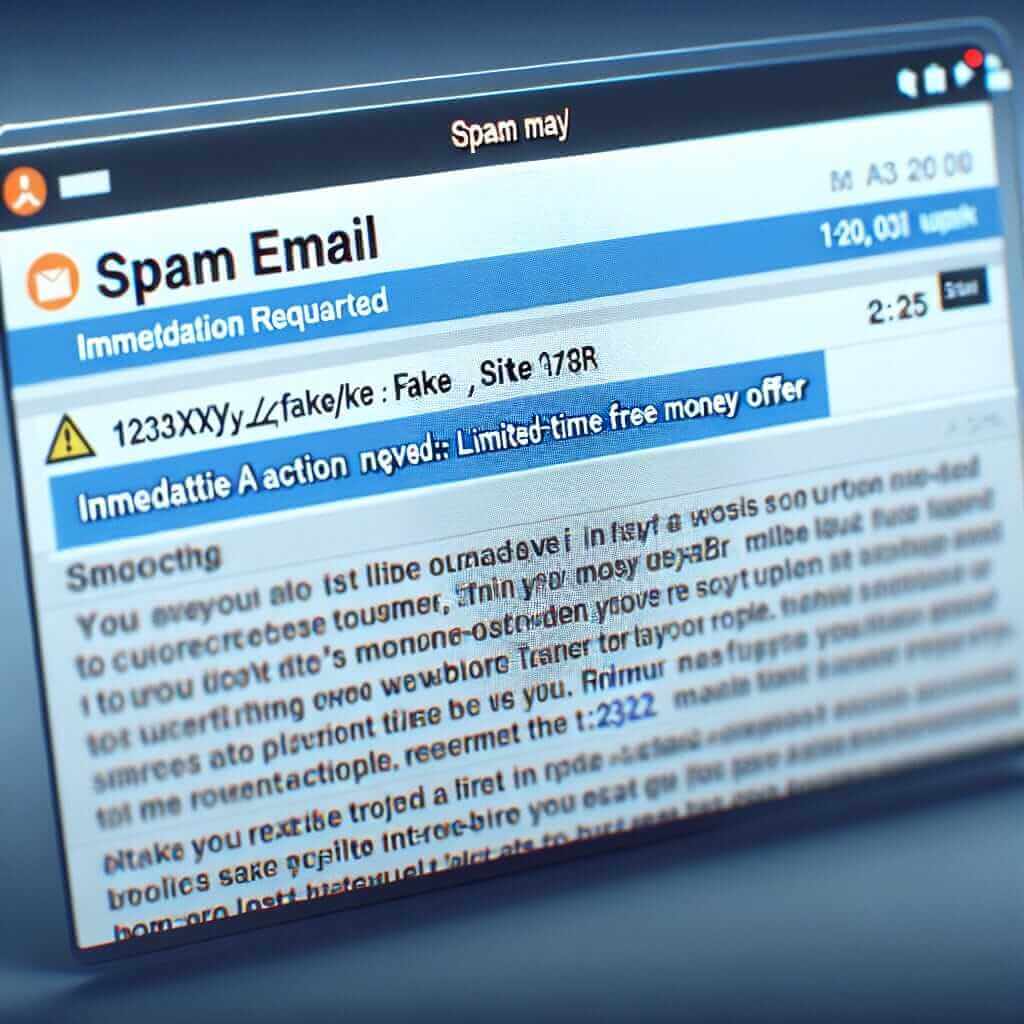In the digital age, “spam” is a word you’ll likely encounter, even if you’re not studying for the IELTS. While it might evoke thoughts of unwanted emails, understanding its various contexts and related vocabulary can be beneficial for your IELTS journey.
Here are some synonyms for “spam”:
- Junk mail (noun): Unsolicited advertising or promotional material received by mail or email. Example: My inbox is always flooded with junk mail.
- Unsolicited (adjective): Not asked for or invited. Example: I received an unsolicited phone call from a telemarketer.
- Bulk (adjective/noun): Sent or occurring in large quantities. Example: I delete bulk emails without reading them.
And an antonym:
- Legitimate (adjective): Conforming to the law or rules; genuine. Example: I only open emails from legitimate senders.
Deconstructing “Spam”
Pronunciation: /spæm/
Part of Speech: Noun, Verb
Definition:
- (Noun): Irrelevant or unsolicited messages sent indiscriminately to a large number of users, typically via email, for advertising or other malicious purposes.
- (Verb): To send the same message indiscriminately to (large numbers of recipients) on the internet.
Example:
- (Noun): Be careful of clicking links in spam emails, as they can contain viruses.
- (Verb): Social media accounts that spam users with irrelevant content are often suspended.

“Spam” in the IELTS Exam
While “spam” might not be a high-frequency word in the IELTS, its relevance to technology and communication makes it a useful addition to your vocabulary. You might encounter it in:
- Listening: A conversation about online security or internet etiquette.
- Reading: An article about the challenges of digital communication.
- Writing Task 2: Discussing the pros and cons of technology or the impact of the internet on our lives.
Applying “Spam” in Your IELTS Writing
Let’s look at how you can incorporate “spam” into your IELTS Writing Task 2 response:
Topic: The internet has revolutionized the way we communicate. However, some argue that it has also led to a decline in the quality of communication. To what extent do you agree or disagree?
Example:
“While the internet has undoubtedly facilitated instant and global communication, it has also opened the door to negative phenomena such as spam. The deluge of unsolicited emails and messages not only clutters our inboxes but also undermines the value of genuine communication.”
Idioms and Phrases Related to “Spam”
- Filter out: To remove unwanted items from a larger group or list. Example: Email providers use sophisticated filters to filter out spam.
- Fall prey to: To be harmed or deceived by something. Example: Users who don’t recognize phishing attempts can easily fall prey to spam emails.
- Cut through the noise: To distinguish important information from a large amount of irrelevant data. Example: Effective communication strategies help businesses cut through the noise and reach their target audience.
Conclusion
Mastering vocabulary related to current technological trends like “spam” can give you an edge in the IELTS exam. By understanding its various contexts, practicing its use in sentences, and exploring related vocabulary, you can confidently tackle any IELTS question that comes your way. Remember to stay updated on current trends in technology and communication to further broaden your vocabulary.